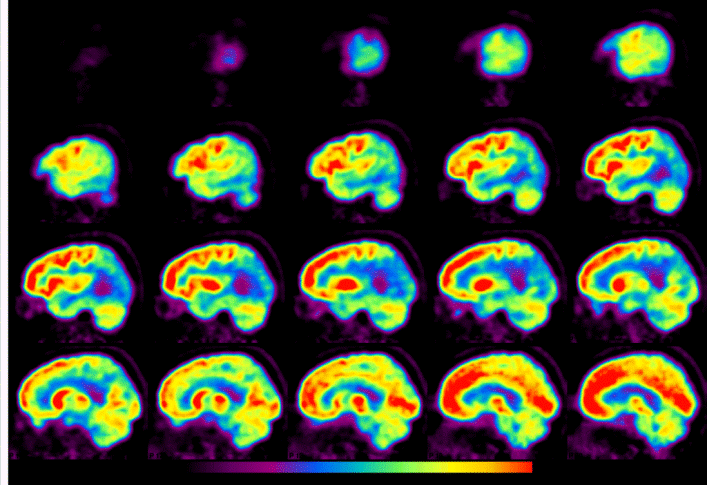Next: Harnessing brain scans to personalize autism-related behavioral interventions
 Autism First: Brain Patterns May Predict Treatment Response (Medscape):
Autism First: Brain Patterns May Predict Treatment Response (Medscape):
“It’s possible to predict whether a young child with autism spectrum disorder (ASD) will respond to an evidence-based behavioral intervention by analyzing brain activity patterns with functional MRI (fMRI) prior to treatment, new research suggests…
“We [currently] have no way to predict a child’s outcome and to match a child to a particular intervention or determine which children have the best chance to respond to a particular treatment”… The researchers investigated the accuracy of fMRI neurobiomarkers in predicting response to PRT in seven girls and 13 boys with ASD (mean age, 5.9 years).
“This discovery might lead to further development of precision medicine in ASD,” lead author Daniel Y. J. Yang, PhD, previously of Yale University, now with the Autism and Neurodevelopmental Disorders Institute, the George Washington University and Children’s National Health System, in Washington, DC, told Medscape Medical News.
For example, pretreatment fMRI or electroencephalography “may be used to facilitate the fitting process when families want to identify appropriate and effective treatments for their children,” he explained.
Study: Brain responses to biological motion predict treatment outcome in young children with autism (Translational Psychiatry)
- Abstract: Autism spectrum disorders (ASDs) are common yet complex neurodevelopmental disorders, characterized by social, communication and behavioral deficits. Behavioral interventions have shown favorable results—however, the promise of precision medicine in ASD is hampered by a lack of sensitive, objective neurobiological markers (neurobiomarkers) to identify subgroups of young children likely to respond to specific treatments. Such neurobiomarkers are essential because early childhood provides a sensitive window of opportunity for intervention, while unsuccessful intervention is costly to children, families and society. In young children with ASD, we show that functional magnetic resonance imaging-based stratification neurobiomarkers accurately predict responses to an evidence-based behavioral treatment—pivotal response treatment. Neural predictors were identified in the pretreatment levels of activity in response to biological vs scrambled motion in the neural circuits that support social information processing (superior temporal sulcus, fusiform gyrus, amygdala, inferior parietal cortex and superior parietal lobule) and social motivation/reward (orbitofrontal cortex, insula, putamen, pallidum and ventral striatum). The predictive value of our findings for individual children with ASD was supported by a multivariate pattern analysis with cross validation. Predicting who will respond to a particular treatment for ASD, we believe the current findings mark the very first evidence of prediction/stratification biomarkers in young children with ASD. The implications of the findings are far reaching and should greatly accelerate progress toward more precise and effective treatments for core deficits in ASD.
To learn more:
- Neonatal MRI scans of preterm children can help predict cognitive and academic problems, and guide early interventions
- Can brain scans identify ADHD and help predict treatment response?
- Brain waves help predict stress-related sleep problems
- Cognitive therapy or medication? Brain scans may help personalize treatments


